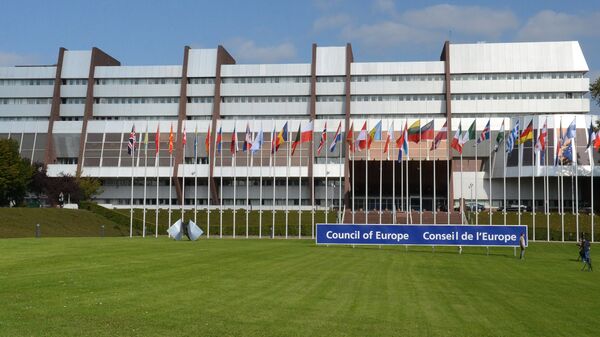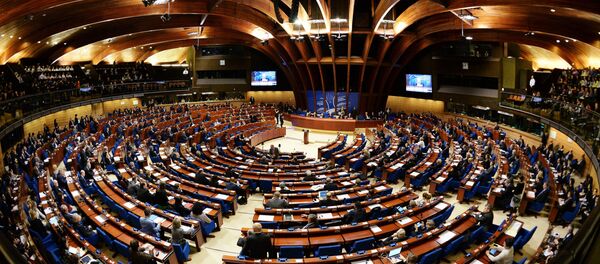In July and August Russia joined two conventions of the Council of Europe on the prevention of terrorism financing and on ensuring security at sports events. Russia has also signed an additional protocol to the Convention on the Prevention of Terrorism.
“The Syrian crisis has given rise to so-called “jihad-tourism” and the Additional Protocol to the Convention on the Prevention of Terrorism, which was signed by Russia on July 27, is a response to this challenge. It criminalizes trips to other countries to participate in terrorist organizations as well as the organization and financing of such trips even if such activitoes are not aimed at committing terrorist attacks per se,” Ivan Soltanovsky said.
When asked to describe the work done being by the Committee of Experts on Terrorism (CODEXTER), which is the main specialized body of the Council of Europe on counterterrorism, Soltanovsky said that it coordinates the Council of Europe’s antiterrorism activities, analyses international counterterrorism norms, standards and practices and overcomes their shortcomings.
“This simplifies international counterterrorist cooperation, accelerates the resolution of many issues and it will be no exaggeration to say that human lives often depend on this,” Ivan Soltanovsky noted.
Mentioning the Action Plan against “violent extremism and radicalization leading to terrorism,” which the Council of Europe adopted in 2015, he said that Russia welcomes its integrated and systemic approach to counterterrorism.
“We are positive about the fact that this document focuses on terrorism prevention. We consider preventive work against radicalization in prisons to be very important. As both Russian and international experience demonstrates many terrorists become radicalized in prisons. Thus relevant developments of the Council of Europe which are based on the best international practices are highly topical,” Soltanovsky emphasized.
He also mentioned the serious threat posed by the so-called “lone wolf” terrorists and praised the council’s recommendations on dealing with them based on the experience obtained by a number of countries.
“No doubt that such a document will be very useful for the Russian Federation,” Soltanovsky noted.
“We obtain a capability to thwart international terrorism, to cut its foreign financing, prosecute for the crimes committed abroad, request terrorist extradition from other countries. So the Council of Europe contributes to a common European legal framework of law and order area and facilitates European democratic stability. We are satisfied that the Council of Europe has managed to retain depoliticized and result-oriented cooperation in this area in the current difficult political climate,” Ivan Soltanovsky continued.
Mentioning the Council of Europe Convention on an Integrated Safety, Security and Service Approach at Football Matches and Other Sports Events, which Russia also ratified in August, he said that the ratification would help Russia better prepare for the upcoming Football World Cup.
“Hooliganism at sports events has a trans-border effect. The convention will aid in establishing a new system of ensuring the safety of such events. This step demonstrates Russia’s serious attitude towards both implementation and the development of new sports standards in this area,” Soltanovsky noted.
He also mentioned the bilateral anti-doping action plan that was signed by Russia and the Council of Europe in May 2016 and is aimed at overcoming the doping scandal involving Russia.
“WADA has recently allowed the Russian Anti-Doping Agency to make tests, and published a favorable report on the status of the Russian anti-doping system. This plan is unique because it sets high anti-doping standards. After it has been implemented, Russia will become the most advanced country in this field and an example for other countries to follow,” Ivan Soltanovsky concluded.




